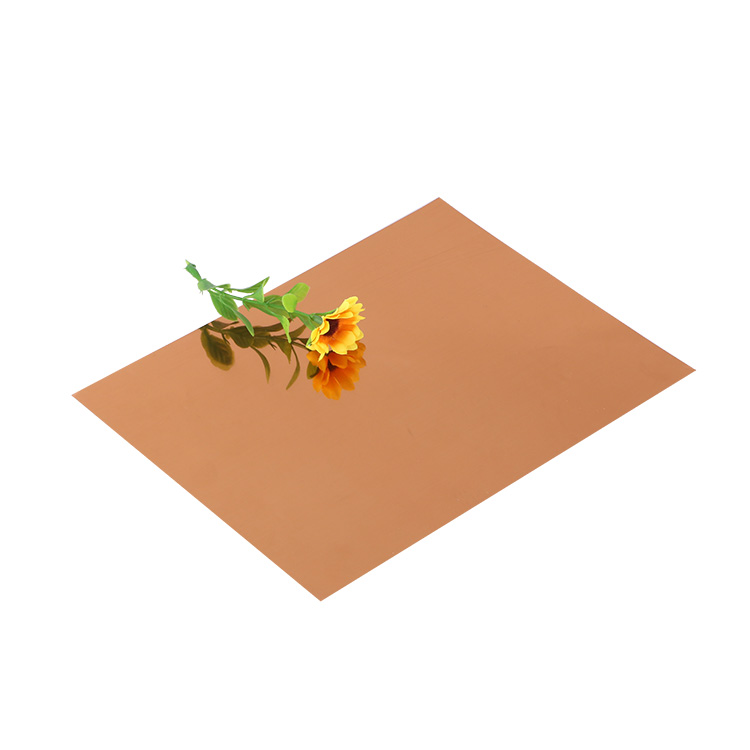The Shining Impact: Applications and Industries Benefiting from Mirror Surface Finishes
2024-06-19
A mirror surface finish isn't just about aesthetics; it serves practical and essential functions across a variety of industries. From improving efficiency to enhancing the visual appeal, the applications of a mirror surface finish are as diverse as they are impactful. In this blog, we explore the key industries and applications that benefit the most from utilizing a mirror surface finish.
1. Automotive Industry
Aesthetics and Performance
In the automotive industry, a mirror surface finish is synonymous with luxury and high performance. Chrome-plated parts, such as trim, mirrors, and wheels, not only enhance the vehicle's aesthetic appeal but also offer functional benefits. The reflective surfaces can help improve visibility and reduce drag, contributing to the vehicle's overall performance.
Corrosion Resistance
Mirror finishes on stainless steel and other metals are also used in engine components and exhaust systems to enhance corrosion resistance and longevity. This ensures that the parts can withstand harsh environmental conditions while maintaining their appearance and functionality.
2. Aerospace Industry
Aerodynamics and Thermal Management
In aerospace, achieving a mirror surface finish on components such as turbine blades and fuselage parts can significantly improve aerodynamics and reduce drag. The smooth, reflective surfaces minimize air resistance, leading to better fuel efficiency and performance.
Optical Components
Precision optical components, such as mirrors and lenses used in aircraft and spacecraft navigation systems, require a flawless mirror finish to ensure accurate reflection and refraction of light. This precision is crucial for the proper functioning of guidance and communication systems.
3. Architecture and Interior Design
Modern Aesthetics
Mirror surfaces are a staple in modern architecture and interior design. They are used in building facades, elevators, and decorative elements to create a sense of space, light, and sophistication. The reflective properties of mirror finishes can make spaces appear larger and more open.
Durability and Maintenance
Stainless steel with a mirror finish is commonly used in high-traffic areas, such as lobbies and public restrooms, due to its durability and ease of maintenance. The smooth surface is resistant to corrosion and easy to clean, making it a practical choice for both functionality and aesthetics.
4. Electronics and Technology
Display Screens and Optical Devices
In the electronics industry, mirror finishes are crucial for display screens, optical devices, and camera lenses. The reflective surfaces ensure clarity and precision, which are essential for the performance of smartphones, tablets, cameras, and other optical instruments.
Heat Sinks and Cooling Systems
Mirror finishes on heat sinks and cooling systems help in efficiently dissipating heat. The smooth, reflective surfaces enhance thermal conductivity, ensuring that electronic components remain cool and operate efficiently.
5. Medical and Scientific Equipment
Hygiene and Sterilization
In the medical field, mirror finishes on surgical instruments, dental tools, and laboratory equipment are essential for maintaining hygiene and ensuring easy sterilization. The smooth, non-porous surfaces prevent the accumulation of bacteria and make the instruments easier to clean and disinfect.
Precision and Accuracy
Scientific instruments, such as microscopes and telescopes, rely on mirror surfaces for precise optical performance. The high reflectivity of mirrors ensures accurate focusing and magnification, which is crucial for scientific research and medical diagnostics.
Conclusion
The utilization of a mirror surface finish spans across multiple industries, each benefiting from its unique properties of reflectivity, smoothness, and durability. From enhancing the performance and aesthetics of automobiles and aircraft to providing precision in medical and scientific instruments, the applications of mirror finishes are both practical and transformative. Understanding these diverse applications underscores the importance of this finish in modern manufacturing and design, highlighting its role in advancing technology, improving efficiency, and creating visually stunning products and environments.



